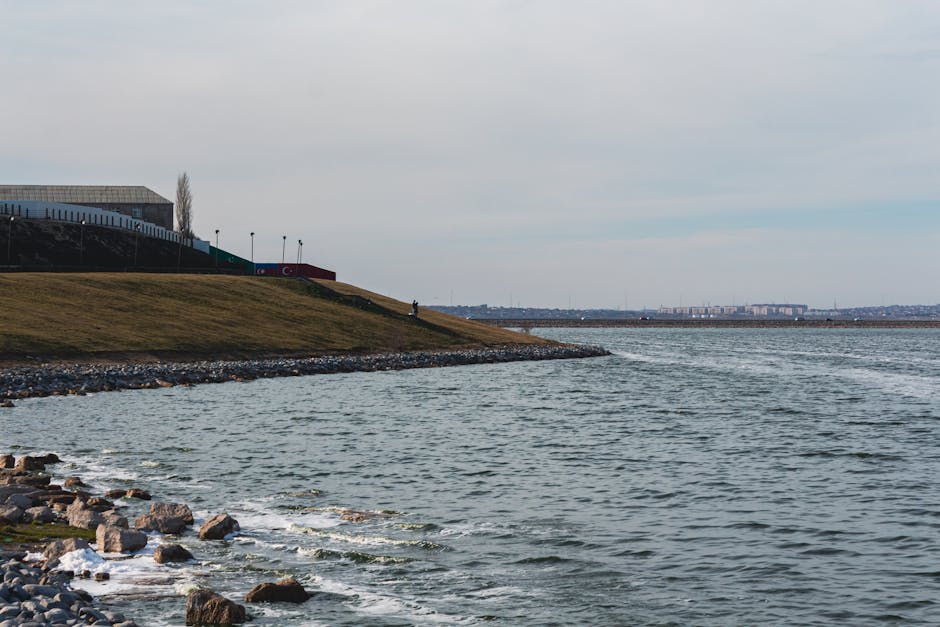The Top Retaining Wall Contractors Near Me in 2024
Why Retaining Walls Are Essential for Your Property
When looking for retaining wall contractors near me, understanding their importance and benefits is crucial. Retaining walls serve as a barrier to control soil erosion, manage water drainage, and create leveled spaces in yards with slopes. Here are some quick answers if you’re short on time:
- Benefits of Retaining Walls:
- Prevent soil erosion
- Improve water drainage
- Improve landscape aesthetics
- Increase property value
- Services to Look For:
- Installation of various wall types
- Reinforcement for added durability
- Repair services for existing walls
Retaining walls not only stabilize soil but also add an attractive element to your landscape. Whether you need a simple structure to prevent erosion or a decorative wall to improve your outdoor space, knowing the right services can make all the difference.
Types of Retaining Walls
When choosing the right retaining wall for your property, understanding the different types available is crucial. Each type has its unique benefits and considerations. Below, we’ll explore the most common types: concrete retaining walls, wood retaining walls, and stone retaining walls.
Concrete Retaining Walls
Concrete retaining walls are favored for their durability, strength, and cost-effectiveness. They are typically made from concrete blocks or poured concrete, each offering distinct advantages.
Concrete Blocks: These are pre-cast blocks that can be stacked to form a wall. They are known for their uniformity and ease of installation. Concrete blocks are versatile and can be used for various heights and designs.
Poured Concrete: This type involves pouring concrete into a mold on-site. Poured concrete walls are seamless and can be molded into any shape, making them ideal for custom designs. They also offer superior strength and durability compared to other materials.
Benefits:
– Durability: Concrete walls can withstand harsh weather and significant pressure.
– Strength: Reinforced with steel rebars, they can support large soil movements.
– Cost-Effectiveness: Generally more affordable than natural stone and requires less maintenance.
Wood Retaining Walls
Wood retaining walls offer a natural aesthetic appeal and are often used in residential landscapes. They are usually made from pressure-treated wood to resist decay and insects.
Affordability: Wood walls are generally less expensive than stone or concrete, making them a budget-friendly option.
Aesthetic Appeal: They blend well with natural surroundings and can be stained or painted to match your landscape design.
Maintenance Needs: While wood walls can be attractive, they require regular maintenance to prevent rot and insect damage. Over time, wood may need to be replaced more frequently than other materials.
Stone Retaining Walls
Stone retaining walls provide a natural look and are highly durable. They can be made from natural stone or manufactured stone veneer.
Natural Stone: This option includes materials like granite, limestone, and sandstone. Natural stone walls are incredibly durable and can last for decades. They offer a timeless, rustic appeal that improves any landscape.
Manufactured Stone Veneer: These are man-made products that mimic the look of natural stone but are lighter and easier to install. They provide a similar aesthetic at a lower cost.
Cost Considerations:
– Natural Stone: While beautiful and durable, natural stone can be expensive due to the cost of materials and labor.
– Manufactured Stone Veneer: More affordable than natural stone, offering a similar look with less weight and installation complexity.
Choosing the right type of retaining wall depends on your specific needs, budget, and aesthetic preferences. Whether you opt for the strength and affordability of concrete, the natural charm of wood, or the timeless beauty of stone, each material offers unique benefits to enhance your outdoor space.
How to Choose the Right Retaining Wall Contractor
When it comes to building a retaining wall, selecting the right contractor is essential. Here’s what you need to consider:
Evaluating Experience and Expertise
Experience matters. Look for contractors with a solid history in the business. The longer they’ve been around, the more likely they have the skills needed for your project. For instance, Marchi Paving Inc. has been building concrete walls for many years, ensuring reliable and fast installations.
Types of projects handled: It’s important that your contractor has experience with the specific type of wall you need. Whether it’s reinforced concrete walls or more traditional options, their portfolio should reflect a range of successful projects.
Checking Licensing and Insurance
Licensing and insurance are non-negotiable. A licensed contractor shows they meet local regulations and standards. This compliance is crucial for ensuring quality and safety. Insurance, on the other hand, protects you from liabilities in case of accidents or damages during the project.
Peace of mind: Knowing your contractor is licensed and insured allows you to focus on the project without worrying about potential legal or financial issues. Always ask for proof of both before signing any contracts.
Reading Customer Reviews
Customer reviews offer valuable insights. Look for testimonials and online reviews to gauge a contractor’s reliability and quality of work. Positive reviews can highlight strengths, while negative reviews can reveal potential red flags.
Word-of-mouth: Personal recommendations are also powerful. Ask friends, family, or neighbors if they’ve had any experience with retaining wall contractors. A contractor like Marchi Paving Inc. is praised for their customer satisfaction and customized solutions, which can be reassuring.
By focusing on these factors—experience, licensing, insurance, and customer reviews—you can find the best retaining wall contractors near me who will deliver high-quality results for your project.
Top Retaining Wall Contractors Near You
Marchi Paving Inc.
Marchi Paving Inc. stands out for its local expertise and commitment to customer satisfaction. With over a decade of experience serving Lubbock and nearby areas, they offer custom designs tailored to your specific needs.
Their high-quality materials include durable concrete blocks and natural stones, ensuring longevity and aesthetic appeal. The team is fully licensed and insured, giving you peace of mind. They also provide free consultations to discuss your project goals, budget, and timeline.
Unique Selling Points:
– Custom designs that complement your landscape
– High-quality, durable materials
– Fully licensed and insured team
– Free consultations
Cost-Effective Retaining Wall Solutions
Affordable Materials
When planning a retaining wall, choosing cost-effective materials can save you a lot of money. Here are some budget-friendly options:
- Concrete Blocks: These are a popular choice due to their durability and cost-effectiveness. Concrete blocks are easy to install and can be found at most home improvement stores.
- Pressure-Treated Pine: This type of wood is affordable and resistant to decay. It’s a good option for those who prefer a natural look but are on a budget.
- Granite: While typically more expensive, granite can be a cost-effective choice if sourced locally. It offers a natural and durable option for retaining walls.
DIY vs. Professional Installation
Deciding between DIY and professional installation depends on your budget, skills, and the complexity of the project.
Cost Comparison
- DIY Installation: This can save you on labor costs but requires a significant time investment. Materials for a DIY project might cost between $1,000 and $3,000, depending on the size and type of wall.
- Professional Installation: Hiring a pro can cost between $5,000 and $15,000, but it ensures the job is done right. Professionals know how to handle complex issues like drainage and soil stability.
Pros and Cons
DIY Installation:
– Pros:
– Lower cost
– Full control over the project
– Learning experience
- Cons:
- Time-consuming
- Requires tools and skills
- Risk of mistakes
Professional Installation:
– Pros:
– Expertise and experience
– Faster completion
– Quality assurance
- Cons:
- Higher cost
- Less control over the process
When to Hire a Pro
Consider hiring a professional if:
– The project is large or complex.
– You lack the necessary tools and skills.
– You want a guarantee of quality and durability.
By choosing the right materials and weighing the pros and cons of DIY vs. professional installation, you can find cost-effective solutions for your retaining wall project.
Next, we’ll address some frequently asked questions about retaining walls.
Frequently Asked Questions about Retaining Walls
What is the most cost-effective retaining wall?
The most cost-effective retaining wall often depends on your specific needs and budget. However, concrete blocks are a popular choice due to their affordability and durability. They are easy to install and require less maintenance compared to other materials.
Wood retaining walls are another budget-friendly option. They offer a natural look but may need more maintenance over time to prevent rot and insect damage.
Poured concrete walls are also cost-effective in the long run. They provide excellent strength and durability, though the initial installation cost might be higher.
How to build a retaining wall on a budget?
Building a retaining wall on a budget involves choosing the right materials and possibly doing some of the work yourself. Here are some tips:
- Concrete blocks: These are affordable and easy to work with. They can be stacked without mortar for smaller walls.
- Railroad ties: These are a cost-effective and rustic option. They are durable but can be heavy to handle.
- Gabion walls: These use wire cages filled with rocks or other materials. They are inexpensive and easy to assemble.
If you decide to DIY, make sure to follow proper guidelines to ensure the wall’s stability and longevity. For larger or more complex projects, hiring a professional is often the best choice.
What is a gravity retaining wall?
A gravity retaining wall is a type of wall that relies on its own weight to hold back soil. It works by using the mass of the wall material to resist the pressure from the soil behind it.
How it works:
– The wall is typically made from heavy materials like concrete, stone, or large blocks.
– The base of the wall is usually thicker than the top to provide stability.
– No additional reinforcement is required, making it a simple and effective solution for many situations.
Benefits:
– Simplicity: Easy to design and build.
– Durability: Long-lasting with minimal maintenance.
– Cost-effective: Often cheaper than reinforced walls due to fewer materials needed.
By understanding these common queries and expert answers, you can make informed decisions about your retaining wall project.
Conclusion: Best Retaining Wall Contractors Near Me
In summary, retaining walls serve multiple purposes. They prevent erosion, stabilize slopes, and create usable outdoor spaces. They also improve the overall look of your property.
Choosing the right retaining wall contractor is crucial. You want someone with experience, proper licensing, and excellent customer reviews. This ensures your project is done right the first time.
When it comes to retaining wall contractors, local expertise matters. Contractors familiar with your area understand the soil and climate conditions. This knowledge helps them recommend the best materials and techniques for your project.
At Marchi Paving Inc., we pride ourselves on our expertise and customer satisfaction. We offer a range of hardscaping services, including custom concrete and stone retaining walls. Our team is committed to delivering high-quality work that meets your needs and budget.
Ready to start your retaining wall project? Contact us today for a free consultation. Let’s build something great together!


